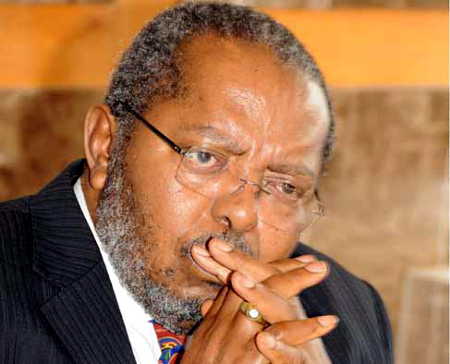Business
Multi-Billion Agric. Fund fails

BoU governor Tumusiime Mutebile
The Agricultural Credit Facility (ACF) managed by the Bank of Uganda is up for review because it was not serving its intended purposes, told The Sunrise that the Central Bank contracted his organisation to solicit views from stakeholders aimed at amending conditions under which Bank of Uganda provides the money to farmers through commercial banks.
The review is the first sign yet of a major failure of another government programme aimed at facilitating access to credit for farmers.
It follows a growing list of failed interventions by the NRM government, including Entandikwa, Plan for Modernisation of Agriculture (PMA) Bonna Bagaggawale and the micro-finance drive among others that have failed to end the access to credit jinx among Uganda farmers.
Katende said: “BoU wants to review its memorandum with the Ministry of Finance regarding the ACF. They asked us to coordinate feedback from stakeholders. eg. farmers, bankers, commodity traders and government agencies. All these groups gave us their inputs.”
Katende noted that among the complaints raised by stakeholders included the lack of transparency in the operations of the fund.
ACF was started by the government during the reign of former Finance Minister Syda Bbumba to provide cheaper credit commercial farmers. The fund, under the custody of the Bank of Uganda, opened with Ushs30billion which would be accessed by farmers through commercial banks. The government committed to adding more money each financial year so as to avail more money to more farmers.
An effort by The Sunrise to try to find out how the fund operates was frustrated by BoU officials who declined to divulge information about it.
There have been complaints from several stakeholders however that the fund was not being accessible to farmers but instead to businessmen who used the money for trade and other non-agric related enterprises.
Katende pointed out that stakeholders expressed concerns that the fund created white elephant or idle projects because it only funded components of entrepreneurs’ projects rather taking a holistic approach to the business.
“One feedback we got is that the fund supports acquisition of machinery but does not provide working capital for purchase of inputs, payment of salaries” added Katende: “People are saying they need access to working capital in order to make their investments meaningful”
“Other people are saying once I have the equipment, I have to rely on farmers to provide the raw materials. But the farmers have no access to capital to reliably produce the raw materials,”adds Katende.
Besides expanding the funding scope, Katende notes that stakeholders expressed concerns that banks were not interested in lending the money at the legislated interest rate of 12% when they can lend their own own money at higher rates.
Comments


















